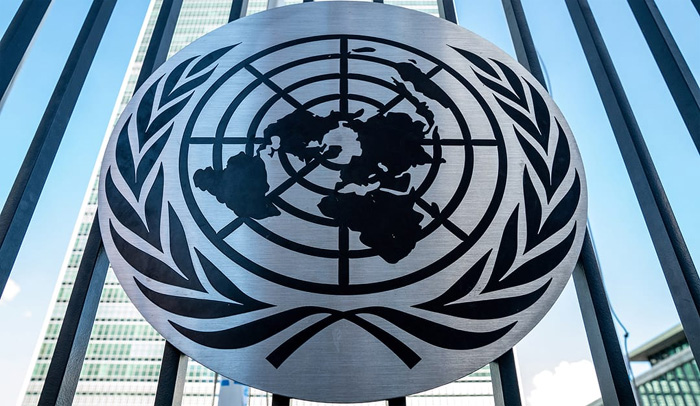How Climate Change, Conflicts, Global South’s Rise Challenged UN’s Relevance In 2024
The United Nations (UN) is fighting to remain relevant due to its lack of reforms and with two major conflicts and the Earth set to cross the 1.5°C threshold for the first time since recording of temperatures, its role as a body that helps restore order during times of global turmoil, has come into question.
Its failure to bring in reforms has also led to the rise of the Global South nations and the rise of multilateral forums that these nations are part of, namely BRICS, SCO, ASEAN etc. G20 and G7 are also inclined to form stronger ties with these multilateral institutions.
COP29, the 29th annual Conference of the Parties to the United Nations Framework Convention on Climate Change (UNFCCC), a global summit where nations meet to discuss and negotiate actions to address climate change, also came under scrutiny like COP28. COP29 held in Azerbaijan’s Baku and COP28 held in United Arab Emirates’ Dubai faced criticism from environmentalists but most importantly small-island nations as they saw the duplicity of UN as the events were hosted, consecutively, in two petro-states.
Azerbaijan is rich in oil and natural gas resources, particularly in the Caspian Sea region and also boasts significant natural gas reserves, including the Shah Deniz field, one of the world’s largest, with proven reserves of over 1 trillion cubic meters.
At COP29 in Azerbaijan, a controversial climate finance deal was reached, where wealthy nations agreed to raise at least $300 billion annually by 2035 to assist developing countries in transitioning to cleaner energy and managing climate impacts. However, this deal was met with criticism from developing nations, including Nigeria, which dismissed the funds as insufficient and unrealistic. The deal’s outcome risks weakening the emissions-cutting plans of poorer countries, raising concerns as new national climate commitments are expected in early 2025. Current climate pledges, even if fully implemented, would lead to a temperature rise of 2.6°C, far exceeding the target of limiting global warming to 1.5°C
Terrorism, Conflicts And UNSC Reforms
“Security Council is like an old club, where there are set members who don’t want to let go of the grip. They want to keep control over the club. Not very keen to admit more members, not keen to have their practices questioned,” Indian external affairs minister S Jaishankar, who has been vocal about UNSC reforms or the lack of it, this year pointed out that UNSC’s lack of reforms is diminishing the effectiveness of the United Nations.
“I think today it is harming the world. It is harming the world because, on key issues confronting the world, the UN is getting less and less effective,” Jaishankar said towards the end of 2023.
Almost a year later, his words reflect the truth.
The UN has raised its voice regarding the conflicts that are ongoing in Russia and Ukraine and Gaza and Israel but only to be silenced by the key players in this conflict.
The United Nations Relief and Works Agency (UNRWA), the UN agency established in 1949 to provide assistance, protection, and advocacy for Palestinian refugees, now faces scrutiny as Israel has raised concerns about UNRWA schools and facilities being used by militant groups, particularly Hamas, as a platform to spread anti-Israel sentiment.
While many countries resumed sending aid to UNRWA, the UN is still unable to get a clean chit from Israel which continues to claim that the organization targets Israel.
The lack of reforms to the UNSC has hurt India and other countries that want to combat terror. Not having a seat as a Permanent Member of the Security Council saw India lose bids to designate terrorists who threatened India’s sovereignty by launching attacks as global terrorists.
Rise Of The Global South
The calls for reforms to the UNSC have come from permanent members themselves, with the UK recently calling for additions to the UNSC which will reflect the current realities of today’s world.
The Global South, which was until recently a collective grouping of countries primarily located in Africa, Latin America, Asia, and Oceania that are often characterized by lower economic development, higher levels of poverty, and a history of colonialism, has stepped in.
While the UN appears like a paper tiger before the likes of the US – which is funding Ukraine and Israel militarily – and Russia and Iran – one fighting a war in Ukraine and the other fighting several proxy wars in West Asia against Israel – countries of the so-called Global South have stepped in more than once to push warring sides to the table for talks.
While China hosted Hamas and Fatah leaders in Beijing and brokered a peace deal between Saudi Arabia and Iran in 2023, India urged Ukrainian President Volodymyr Zelensky and Russian President Vladimir Putin to put an end to the ongoing Russo-Ukrainian war.
Prime Minister Narendra Modi is among the few leaders which has held conversations with both sides – Moscow and Kyiv – and urged them to restore peace.
India has also maintained that the two-state solution be implemented in a bid to bring lasting peace in Israel and Palestine.
BRICS has also called for changes to the UN and is moving towards a de-dollarization in a bid to challenge US control over movement of goods and trade.
All of these events put the UN on backfoot as it fails to remain relevant with countries demanding more action on climate change and cessation of conflicts. The UN has condemned wars and pledged to do more for climate but both, rich and poor nations, have expressed their frustrations with the global body.


Comments are closed.